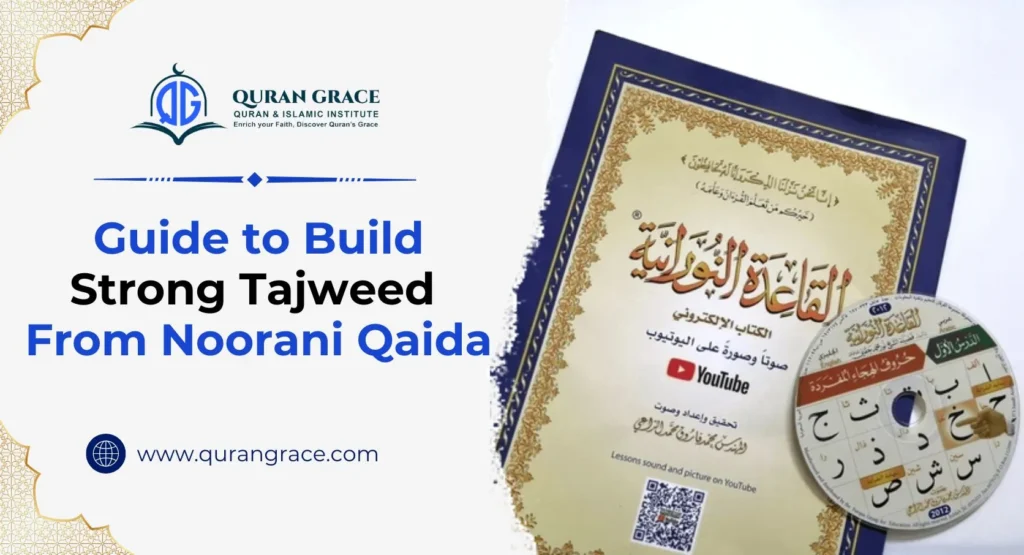Increasing Islamic knowledge is a lifelong journey that strengthens faith, shapes character, and brings a Muslim closer to Allah ﷻ. The Prophet Muhammad ﷺ emphasized the importance of learning by saying, “Seeking knowledge is an obligation upon every Muslim.” Today, gaining deeper understanding of Islam is more accessible than ever — whether through traditional study or an online Islamic studies course. By learning the fundamentals, practicing what we learn, and continuously seeking guidance from Allah, we can nurture a truly enlightened and purposeful Islamic life.
Table of Contents
ToggleTips To Increase Islamic Knowledge
Here is a comprehensive guide on practical steps you can take to embark on this enriching journey.
1. Purify Your Intentions and Make Du’a
The foundation of seeking Islamic knowledge is a sincere heart.
- Renew Your Niyyah (Intention): Ensure your goal is solely to please Allah (SWT) and to act upon what you learn, not for worldly gain, showing off, or debate. A pure intention is what gives weight to your efforts.
- Make Sincere Du’a (Supplication): Ask Allah to grant you beneficial knowledge, make it easy for you to learn, and protect you from knowledge that is not useful. A powerful and oft-repeated du’a is:
“Rabbī Zidnī ‘Ilmā” (My Lord, increase me in knowledge.)
2. Master the Fundamentals of Islamic Sciences
Islamic knowledge is traditionally divided into several key sciences. Focus on building a strong foundation in these areas.
A. The Qur’an
The Qur’an is the primary source of Islamic law and guidance.
- Learn to Read and Recite: Start with Tajweed (the rules of proper Qur’anic recitation) to ensure you are reading the words of Allah correctly.
- Focus on Tafsir (Exegesis/Explanation): Reading the translation is the first step, but understanding the context, meaning, and lessons requires studying reputable Tafsir works. Start with summarized or simpler commentaries (like those by Ibn Kathir or Mufti Taqi Usmani).
- Memorization (Hifz): Even memorizing short chapters (Surahs) or specific verses will greatly enhance your connection with the divine word.
B. The Sunnah and Hadith
The Sunnah (the Prophet’s way) is the second source of law and explains the Qur’an.
- Study Seerah (Prophetic Biography): Learning about the life of Prophet Muhammad (PBUH) provides context for his actions, teachings, and the early history of Islam.
- Read Hadith Collections: Start with concise, foundational books like Riyad-us-Saliheen (The Gardens of the Righteous) to understand the Prophet’s practical advice on ethics, manners, and worship.
C. Fiqh (Islamic Jurisprudence)
Fiqh is the science that deals with the details of your acts of worship (‘Ibadat) and dealings with others (Mu’amalat).
- Learn Your Daily Essentials: Focus on the Fiqh related to Taharah (purification), Salat (prayer), Sawm (fasting), Zakat (charity), and Hajj (pilgrimage).
- Seek an Authentic Source: Understand that Fiqh often involves different schools of thought (Madhabs). Follow the guidance of reputable scholars who adhere to one of the four main Sunni schools (Hanafi, Maliki, Shafi’i, Hanbali) or a recognized Shia authority.
3. Establish a Structured Learning Routine
Consistency is far more important than intensity when it comes to long-term learning.
- Allocate Dedicated Time: Set aside a non-negotiable block of time—even if it’s just 15-30 minutes daily—to read, listen, or study. Treat this appointment with Allah’s knowledge as seriously as any work meeting.
- Find a Teacher or Study Group: Learning from a qualified teacher (Ustadha/Ustadz) is crucial to correct your mistakes, ask questions, and ensure you are learning from a reliable source. Join a local Halaqah (Islamic study circle) or an online course.
- Take Notes and Review: Don’t just passively read or listen. Write down key points, personal reflections, and questions. Reviewing your notes weekly helps solidify the information in your long-term memory.
4. Leverage Modern Resources and Technology
The digital age provides unprecedented access to Islamic learning.
- Attend Online Courses: Enroll in structured courses offered by established Islamic institutions (like Al-Azhar, Islamic Online University, Qalam Institute, etc.). Many are free or very affordable.
- Utilize Apps and Websites: Download apps that offer:
- Qur’an with multiple translations and Tafsir.
- Authentic Hadith collections.
- Prayer time and Qibla direction.
- Listen to Podcasts and Lectures: Use your commute or household chores to listen to lectures from qualified scholars. Be discerning and only listen to those known for their sound methodology and authentic scholarship.
5. Put Knowledge into Action (Amal)
Knowledge without action is like a tree without fruit. The true measure of beneficial knowledge is its practical application.
- Implement Immediately: When you learn a new Sunnah (e.g., how to pray Duha or a specific supplication), try to incorporate it into your life right away.
- Teach Others: The Prophet (PBUH) said, “Convey from me, even if it is a single verse.” By sharing what you have learned—even with a family member or friend—you reinforce the information for yourself and earn continuous reward.
- Reflect and Internalize: Use the knowledge to improve your character (Akhlaq) and your relationship with Allah. True knowledge should lead to humility and greater piety (Taqwa).
Conclusion
Increasing Islamic knowledge is a valuable and ongoing journey that requires patience, sincerity, and consistency. Throughout this process, it is essential to seek guidance from Allah (SWT) and continuously strive to act upon what we learn. At Quran Grace, we provide Quran and Islamic courses designed to help every learner grow in their faith — offering Islamic studies for kids, ladies, and adults courses. We warmly welcome you to join us and begin with a free evaluation class to start your path toward deeper Islamic understanding.








